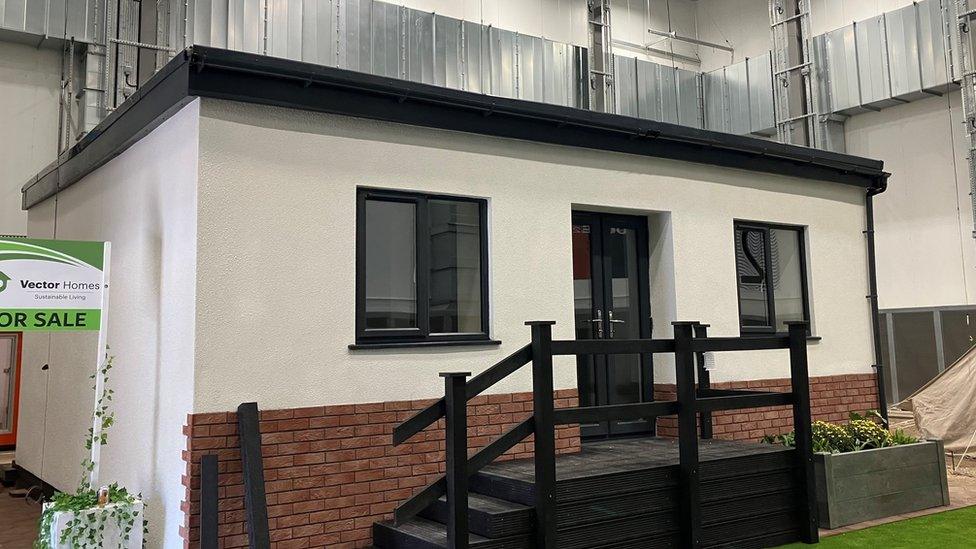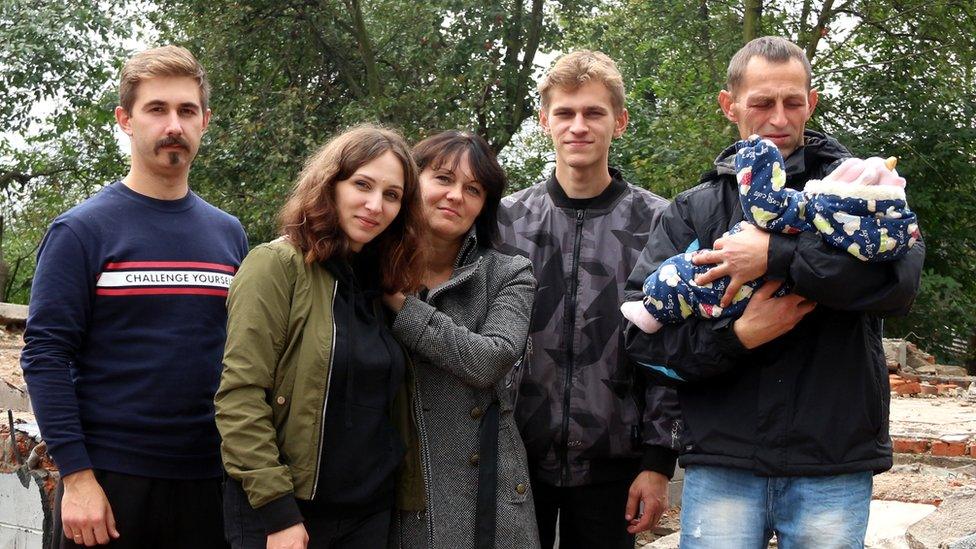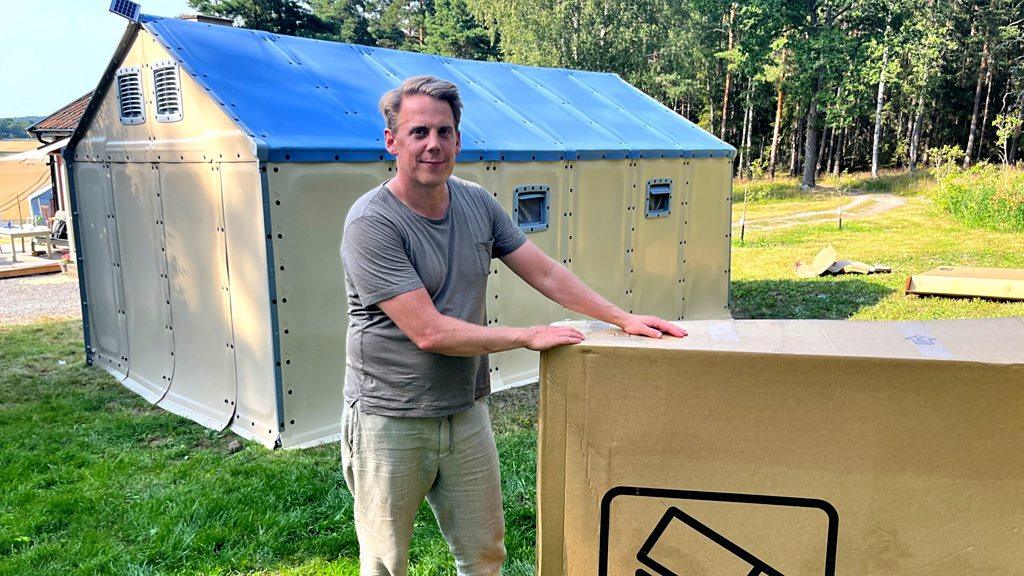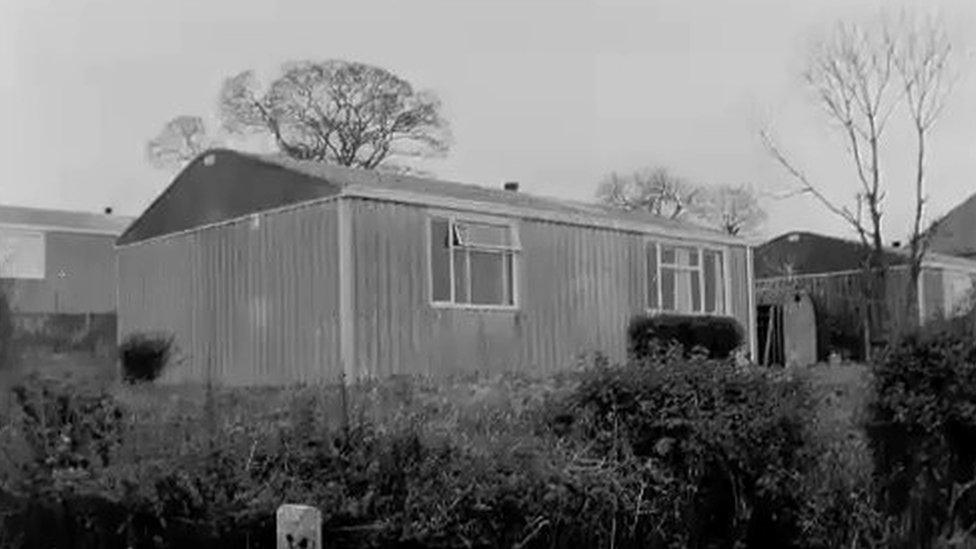University of Salford: Low-carbon flat-pack homes developed
- Published

The flatpack homes can be bolted together using rivets with total costs including assembly of about £60,000, Vector Homes says
A low-carbon flat-pack home has been developed by a company working at a university.
Vector Homes has constructed a bungalow using recycled materials which has been tested in a giant climate laboratory on the University of Salford campus.
The Energy House 2.0 can simulate weather conditions including freezing temperatures, wind, rain and snow.
The company also wants to make larger homes which would be assembled on-site.
Chief executive of Vector Homes, Nathan Feddy, said: "We've hyper-standardised the components. It comes as a flat-pack on the back of an articulated lorry. All you do is line up the holes and put rivets through it.
"The house bolts together really very quickly."
'Cheap and safe'
The prototype home is a low-carbon, one-bedroom bungalow, which has been constructed using recycled materials, including steel and plastics, as well as advanced materials such as graphene.
Mr Feddy said: "Typically, a bungalow would cost £40,000. You're then looking at a delivery and assembly cost of £20,000. So the end cost is around £60,000 - but you obviously need to buy the land first."
The Energy House 2.0 laboratory is being used to test the prototype's thermal properties and its efficiency in different climates.
Chief technical officer at Vector Homes, Dr Liam Britnell, said: "Our mission is to cut costs in construction and our homes are designed to have 80% fewer carbon emissions in the building process compared to a standard brick house."
The Energy House 2.0 is thought to be the largest facility of its kind in the world.
Prof Will Swan, director of Energy House Labs, said: "This is exactly what our unique Energy House 2.0 facility was built for. If we can help companies to develop a product which can provide cheap, safe and warm housing, then there will be huge benefits."

Why not follow BBC North West on Facebook, external, X, external and Instagram, external? You can also send story ideas to northwest.newsonline@bbc.co.uk
Related topics
- Published11 July 2023

- Published15 October 2022

- Published25 February 2020
